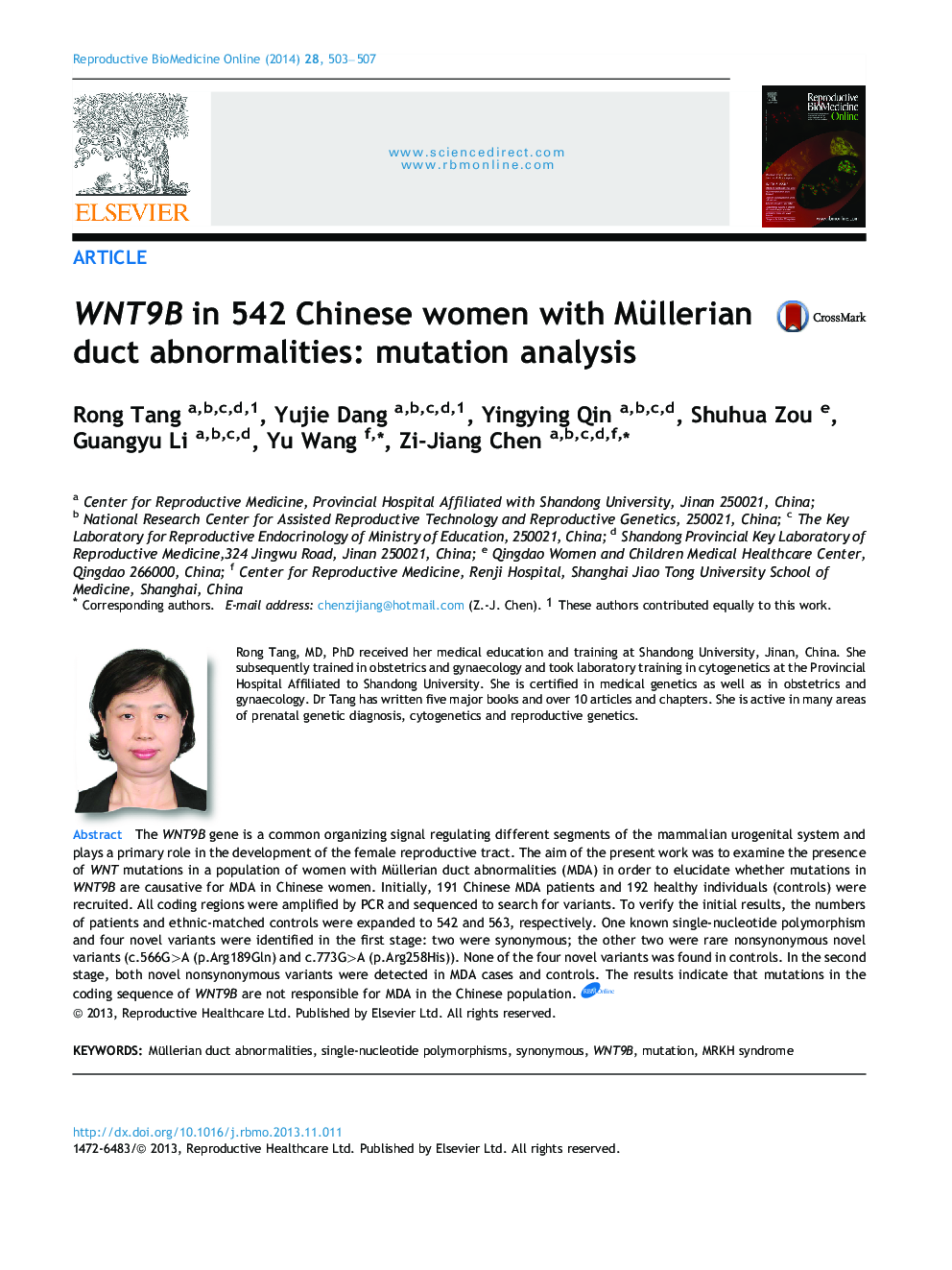| کد مقاله | کد نشریه | سال انتشار | مقاله انگلیسی | نسخه تمام متن |
|---|---|---|---|---|
| 3970204 | 1256709 | 2014 | 5 صفحه PDF | دانلود رایگان |

The WNT9B gene is a common organizing signal regulating different segments of the mammalian urogenital system and plays a primary role in the development of the female reproductive tract. The aim of the present work was to examine the presence of WNT mutations in a population of women with Müllerian duct abnormalities (MDA) in order to elucidate whether mutations in WNT9B are causative for MDA in Chinese women. Initially, 191 Chinese MDA patients and 192 healthy individuals (controls) were recruited. All coding regions were amplified by PCR and sequenced to search for variants. To verify the initial results, the numbers of patients and ethnic-matched controls were expanded to 542 and 563, respectively. One known single-nucleotide polymorphism and four novel variants were identified in the first stage: two were synonymous; the other two were rare nonsynonymous novel variants (c.566G>A (p.Arg189Gln) and c.773G>A (p.Arg258His)). None of the four novel variants was found in controls. In the second stage, both novel nonsynonymous variants were detected in MDA cases and controls. The results indicate that mutations in the coding sequence of WNT9B are not responsible for MDA in the Chinese population.The WNT9B gene is a common organizing signal regulating different segments of the mammalian urogenital system and plays a primary role in the development of the female reproductive tract particularly. The aim of the present work was to examine whether mutations in WNT9B exist in Chinese women with Müllerian duct abnormalities (MDA). In the first stage, we recruited 191 Chinese MDA patients, and 192 healthy individuals served as controls. All coding regions were amplified by PCR and then directly sequenced to search for variants. To identify the results in the first stage, the number of patients and ethnic-matched controls were enlarged to 542 and 563, respectively, in the second stage. One known single-nucleotide polymorphism (SNP) (rs34072914) and four novel variants were identified in the first stage. Among these novel variants, two were synonymous (c.12G>T and c.588C>T) and the other two were rare nonsynonymous novel variants ((c.566G>A (p.Arg189Gln) and c.773G>A (p.Arg258His)). None of the four novel variants was found in controls. In the second stage, sequence analysis revealed that both of the novel nonsynonymous variants were detected in MDA cases as well as in control groups, and comparison of genotype and allelic frequencies between these two groups showed no significant differences in the frequency of c.566G>A and c.773G>A (P > 0.05). The results indicate that mutations in the coding sequence of WNT9B are not responsible for Müllerian duct abnormalities in the Chinese population.
Journal: Reproductive BioMedicine Online - Volume 28, Issue 4, April 2014, Pages 503–507